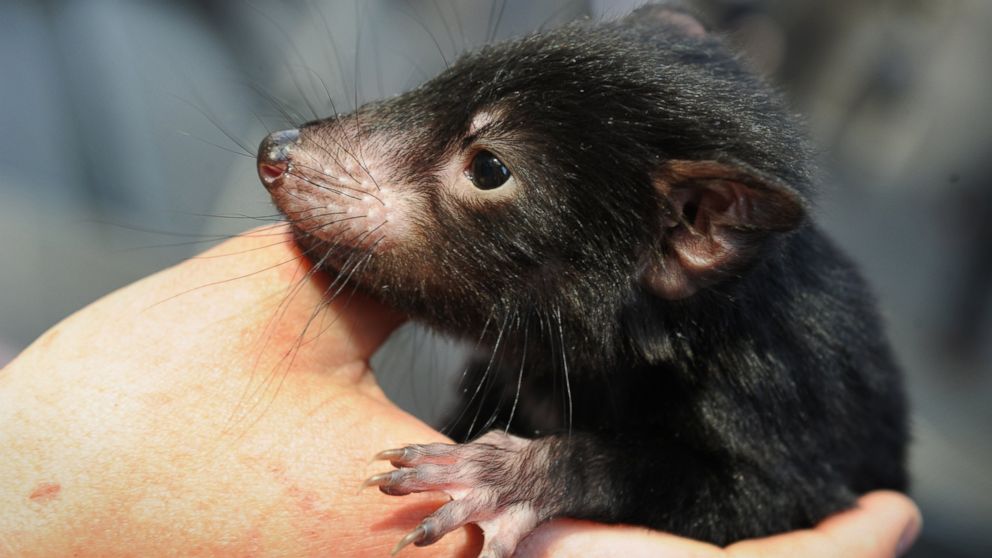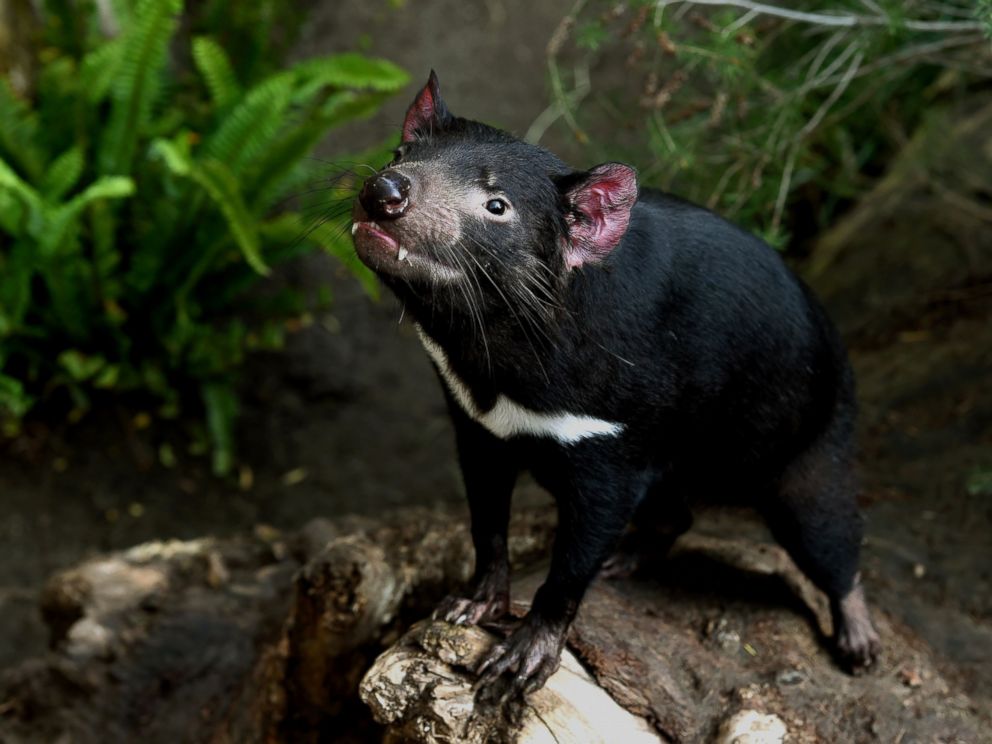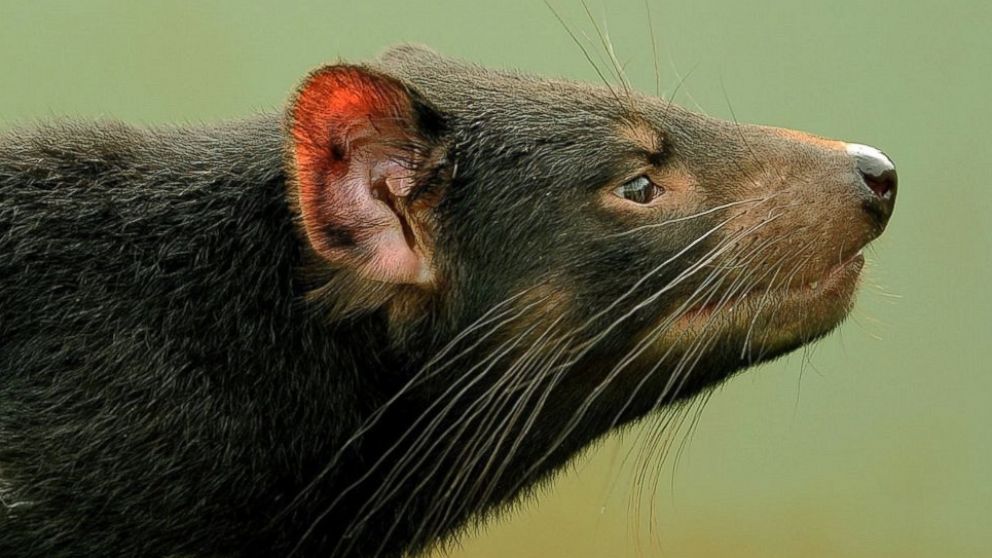Tasmanian Devils Evolving Genetic Resistance to Cancer Threatening Species
A contagious cancer has wiped out an estimated 80 percent of the marsupials.

— -- Tasmanian devils are evolving genetic resistance to a contagious and deadly cancer that's been pushing the endangered species to the brink of extinction, an international team of scientists has found.
Devil facial tumor disease (DFTD), a nearly 100 percent fatal cancer first detected 20 years ago, has wiped out an estimated 80 percent of the Australian marsupials, according to a news release from Washington State University.
Because Tasmanian devils often display aggression by biting each other's faces, DFTD -- one of only three known transmissible cancers -- is easily spread among the animals, WSU said.
But now, scientists mining a vast trove of devil DNA have discovered that two regions in Tasmanian devils' genomes are changing in response to the rapid spread of the cancer.
"Our study suggests hope for the survival of the Tasmanian devil in the face of this devastating disease," Andrew Storfer, a professor of biology at WSU and one of the study's authors, said in the news release.

Storfer said that he, along with other researchers in the U.S., U.K. and Australia, are hopeful they can soon breed DTFD-resistant devils to enhance the genetic diversity of an off-island captive insurance population.
He added that the genomic data could also be ultimately used to "help direct future research addressing important questions about the evolution of cancer transmissibility and what causes remission and reoccurrence in cancer and other diseases."

Storfer and his colleagues' findings were published in the scientific journal Nature Communications today.




